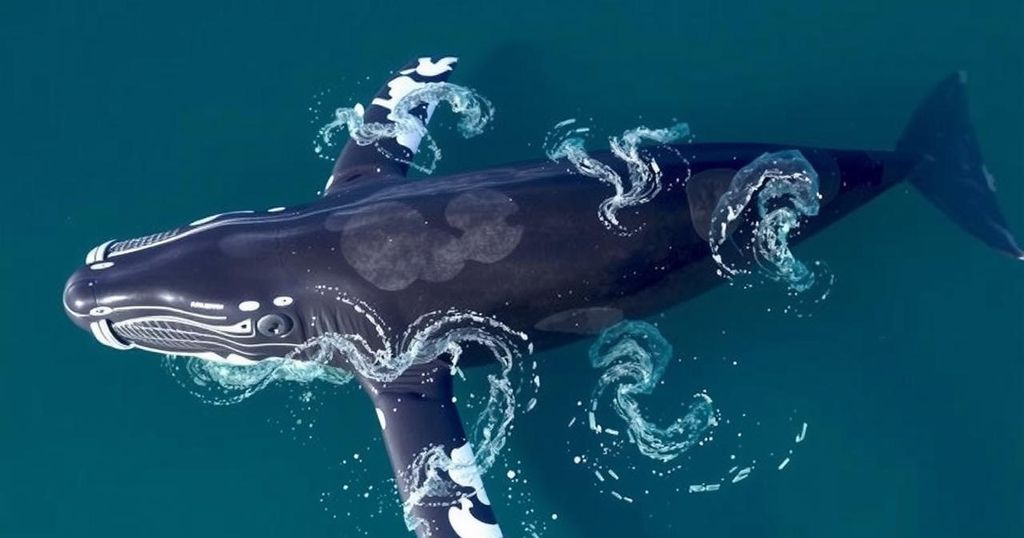Researchers have identified a humpback whale that traveled far beyond its typical migration route from Colombia to Zanzibar, prompting investigations into the influence of climate change on whale populations. This behavior raises concerns about food stability, particularly krill availability, and its impacts on diverse marine ecosystems. Understanding these patterns is critical for developing future conservation strategies to protect marine biodiversity.
Recent observations of humpback whales have revealed an unusual migration pattern that extends beyond their established routes, raising concerns among researchers about the implications for their populations. The identification of an individual whale migrating from Colombia to Zanzibar has led to a comprehensive study published in the journal Royal Society Open Science, which analyzes potential reasons for this deviation in behavior, including climate change and evolving environmental conditions.
Dr. Ekaterina Kalashnikova, the lead researcher, noted, “The exact reasons are not known, but possible causes include global climate change, extreme environmental events (which are occurring more frequently today) and evolutionary mechanisms of the species.” These factors could critically affect humpback whales as shifts in climate disrupt their migratory patterns, suggesting a growing need to investigate the causes and effects of such behaviors on marine biodiversity.
Understanding these behavioral changes is crucial, particularly regarding the availability of krill, the primary food source for humpback whales. Research from the University of Oregon indicates that warmer ocean temperatures significantly influence krill population dynamics. Should this be the driving factor behind the observed migration, it may denote instability in food sources, threatening the survival of whale populations as they exhaust themselves in search of sustenance. This scenario exemplifies the broader implications of climate change on biodiversity and ecosystem functionality.
Alternatively, the migration may signify a positive trend in humpback populations due to successful conservation efforts, although this remains speculative. The analysis of these behavioral patterns is vital for future conservation and mitigation strategies against climate change. As stated, “A better understanding of migration patterns can help to plan protected areas more effectively and minimize the impacts of climate change on marine ecosystems.”
Continued research into behavioral adaptations across different species has revealed mixed results—some adaptations appear advantageous, while others can be detrimental, as illustrated by certain insects losing breeding abilities due to environmental changes. Despite some adaptability observed in wildlife, researchers emphasize the necessity of reducing greenhouse gas emissions globally to sustain the long-term survival of many species in an ever-evolving climate.
Humpback whales undertake extensive migrations each year from warm breeding areas to cooler feeding grounds. Recent studies indicate a concerning shift in these migration patterns, reflecting broader environmental changes that could signify significant impacts on marine ecosystems. Environmental scientists are increasingly focused on understanding how climate factors, including water temperature and food availability, potentially disrupt these natural behaviors, thereby informing conservation efforts and policy strategies to protect vulnerable species such as the humpback whale.
In summary, the recent documentation of a humpback whale’s unusual migration underscores the potential impacts of climate change on marine life. Researchers are investigating the causes behind such behavioral changes, highlighting concerns regarding food availability and overall species survival. Whether these adaptations signify a thriving population or increased vulnerability remains to be seen, but the findings emphasize the importance of ongoing research to guide effective conservation measures in the face of global environmental changes.
Original Source: www.thecooldown.com






